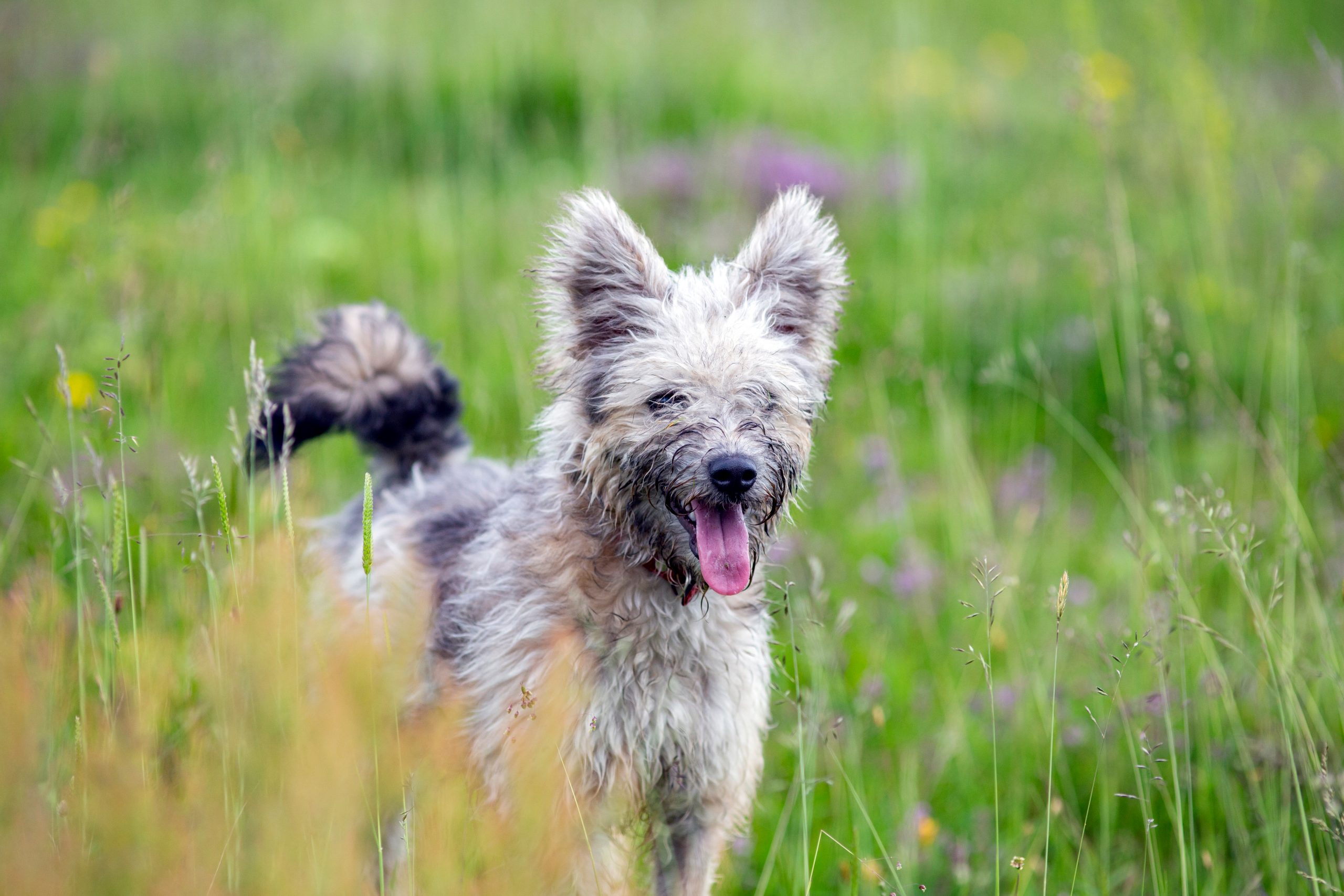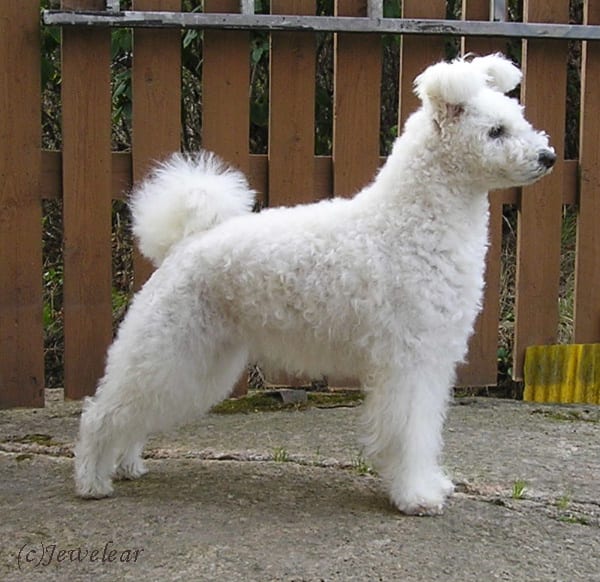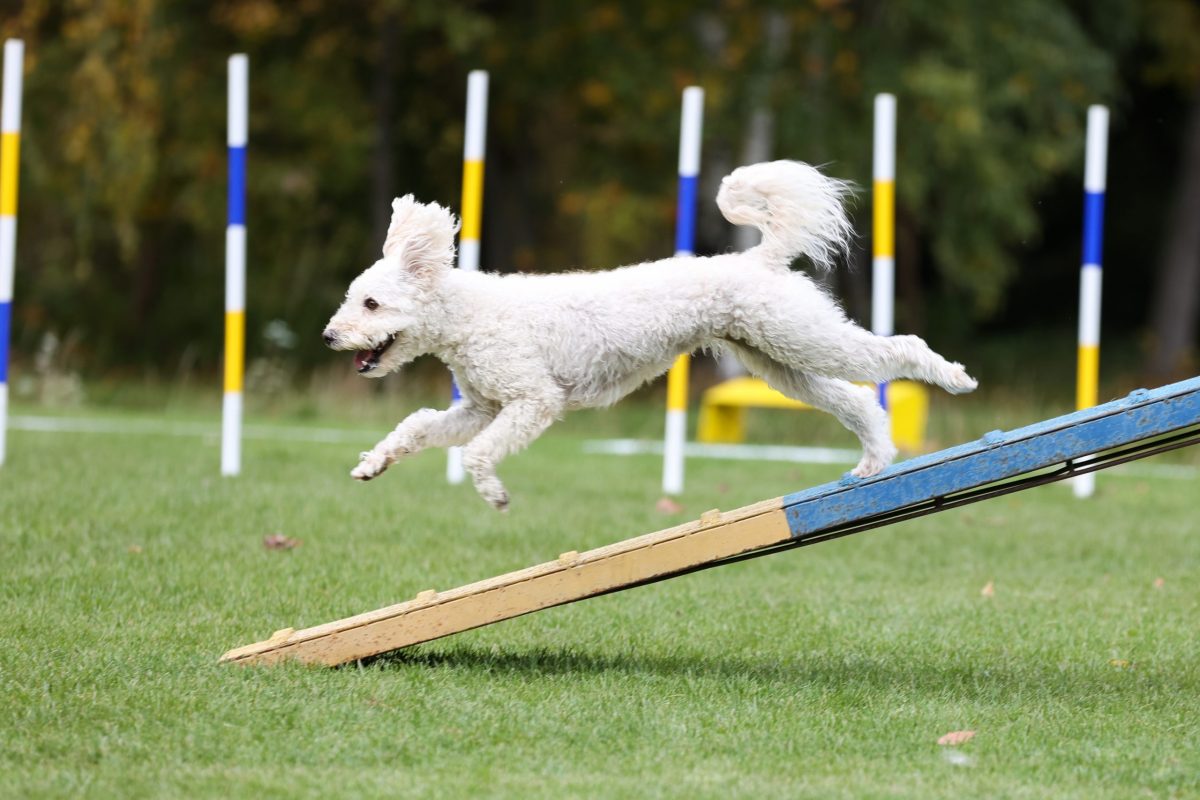Pumi
No products found which match your selection.
Shelter Dog Meal Donation Count:
No products found which match your selection.
The Pumi is a versatile, medium-sized dog breed that combines intelligence, agility, and a lively temperament. They thrive in active environments where they can engage in physical and mental exercises. With their high trainability and sociable nature, Pumis make excellent family pets, adaptable to various living situations, including apartments, as long as their exercise needs are met. Regular grooming and positive reinforcement in training are key to keeping this spirited companion happy and healthy.
The Pumi is a versatile breed, excelling in various dog sports and activities. They are highly trainable and eager to please, making them great companions for obedience, agility, and herding events. Their alert nature also makes them excellent watchdogs.

Originating in Hungary over 300 years ago, the Pumi has been cherished as a sheepdog, excelling in herding and guarding livestock. Their keen intelligence and adaptable nature have made them a versatile breed, capable of performing a variety of tasks beyond their herding roots.




Pumis are generally healthy, but, like all breeds, they can be prone to specific genetic conditions. Regular veterinary check-ups and health screenings for hip dysplasia, patellar luxation, and eye disorders are recommended.
Their curly coat requires regular grooming to prevent mats and tangles. Brushing a few times a week and occasional trimming will keep their coat in top condition.
Highly energetic, Pumis need daily physical and mental stimulation. Activities like long walks, play sessions, and dog sports are ideal for keeping them engaged and happy.
With their high intelligence, Pumis respond well to training. Early socialization and obedience training are crucial, and they thrive with positive reinforcement techniques.
A balanced diet suited to their age, size, and energy level is essential for maintaining their health and vitality. Consultation with a vet can help determine the best feeding schedule and diet.
Living with a Pumi offers a unique blend of joy, energy, and companionship. Their intelligence, combined with their playful and affectionate nature, makes them ideal pets for active families and individuals. Caring for a Pumi requires a commitment to regular grooming, exercise, and training, but the rewards of their loyalty and love are immeasurable. Embrace the adventure of life with a Pumi, and enjoy the endless moments of happiness and companionship this breed brings.
The Pumi, like any breed, has certain health issues that it may be prone to. However, with proper care and regular veterinary check-ups, many of these issues can be managed or prevented. Here are some common health concerns for Pumis:
Regular vet check-ups and these specific tests can help in early detection and effective management of potential health issues in Pumis. It's also important to maintain a healthy lifestyle with proper nutrition, exercise, and grooming for the overall well-being of the dog.
The iHeartDogs Free Rx Discount Card Program is a pet prescription discount card that can help you save money on your furry friend’s medications. The card is free to sign up for, and you can use it at participating pharmacies nationwide. To use the free program, simply show the card to your pharmacist when you pick up your pet’s prescription. The pharmacist will then scan the card, and you will receive a discount on the price of the medication.LEARN MORE
Caring for a Pumi, like any dog, involves various expenses that contribute to the overall annual cost. These costs can vary depending on factors like location, lifestyle, and the specific needs of the dog. Here’s a breakdown of typical annual expenses for a Pumi:
Total Estimated Annual Cost:
$2500 - $6300
It's important to note that these figures are estimates and can vary. Also, the first year of owning a dog can be more expensive due to one-time costs like spaying/neutering, initial vaccinations, and training. Regular budgeting for your dog's needs and an emergency fund for unforeseen costs are essential for responsible pet ownership.